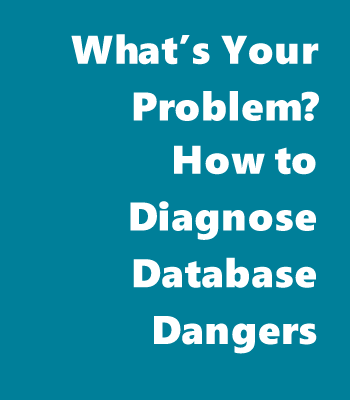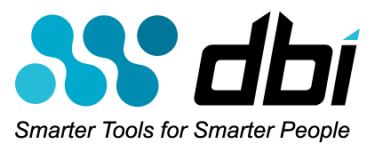Your database is your competitive advantage—it lets you serve more customers, faster and more efficiently than your competition. It’s no exaggeration to say when it comes to business today that you’re either in the fast lane, or you’re road kill. So when a database slowdown occurs, it already has your full attention.
| If your database is sick, your organization is unhealthy, your customers are unhappy, and your reputation suffers. Your database is your competitive advantage—it lets you serve more customers, faster and more efficiently than your competition. It’s no exaggeration to say when it comes to business today that you’re either in the fast lane, or you’re road kill. So when a database slowdown occurs, it already has your full attention.
|
 |
- Your CPUs are working too hard. Say for instance, you have a dataset in your IBM DB2 LUW system that’s 200 megabytes in size. It easily fits into your one gigabyte of system memory. When you search for something in the dataset, your system is set up to scan through all 200 megabytes—which seems like it’s no problem since it completes the scan fast. But rifling through all 200 megabytes makes the CPUs work harder, and this wastes energy and robs you of margin. So when there’s a Tweet that drives the world to your site, you don’t have the excess capacity to handle the demand and your system crawls.
- Your CPUs aren’t set up efficiently. One or two people scanning a server is one thing. But when more users tap into the database, that CPU is going to start to get overwhelmed quickly. When that occurs, things start to move slower and slower, which can even lead to a complete crash.
- Bad indexing strategy. Apart from hardware failure, this is the real heart of the problem. You search through far too much memory to find what you are looking for, when you really should be looking in a smaller area. It’s difference between finding a recipe by scanning an entire cookbook as opposed to just scanning the index. The index is easier and faster.
- Bad scripts. The ad hoc performance tweaks written to solve your database problems often cause more harm than good, because they mask rather than cure what's ailing the system.
- Performance Tuning. The free software provided by your vendor can actually make things worse because it requires system memory and CPUs at the very moment that your system needs them for other critical functions.
What You Need to Know
When it comes to business today that you’re either in the fast lane, or you’re road kill.

|
What would your business be like if it ran 4x faster? We'll present a methodology and key metrics to help you achieve rapid, measurable, and significant performance gains in your DB2 LUW databases in minutes! Register Now for a Free Webinar. |

